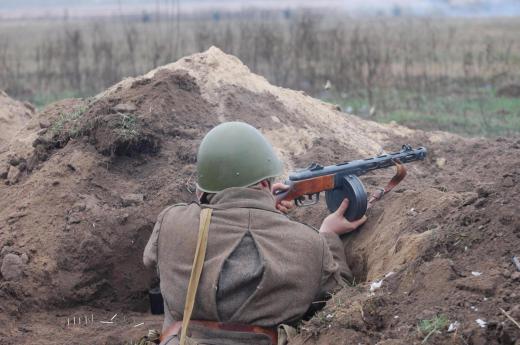What is a Chemical Agent?
 Mary McMahon
Mary McMahon
A chemical agent is a chemical compound which has deleterious effects on human health. There are a number of different types of chemical agents, and a range of uses for these compounds, from crowd control to chemical warfare. Due to concerns about the use of chemical agents, access to these chemicals is often tightly controlled to ensure that they do not fall into the wrong hands. Many law enforcement agencies have training in how to handle chemical agents, and how to respond to chemical agent attacks.
People have been utilizing chemical agents for thousands of years. The Ancient Greeks supposedly attacked each other with toxic smoke, an early form of chemical warfare, and numerous compounded poisons have been used throughout history to eliminate people. In the 20th century, the widespread use of chemical agents in warfare began to be an issue of concern, after the use of substances like mustard gas in the trenches of World War One. Numerous nations have signed an international ban on chemical warfare and the production of chemical agents which can be used in war, although stockpiles of chemical weapons still exist.

Many governments have a classification system for chemical agents which divides them into categories for regulatory purposes. Some chemical agents have no practical purpose beyond use as chemical agents, while others have some industrial applications, and some have numerous potential applications which are entirely separate from their use as chemical agents. A chemical agent in the first class is often illegal or closely regulated, while compounds in the latter two classes are subject to varying degrees of regulation.

A chemical agent can act on the human body in a number of ways. Some attack the pulmonary system, causing people to choke, while others degrade the nerves, causing brain damage and a loss of motor control. Blistering or vesicant agents cause large and painful blisters to emerge on the skin, while lachrymatory agents cause involuntary crying. Cytotoxic agents interfere with the production of proteins in the human body, and an incapacitating chemical agent is designed to bring people to a halt without causing long term damage.

Some examples of chemical agents include: ricin, chlorine gas, VX, mustard gas, arsine, pepper spray, tear gas, and sarin. Some of these agents are fatal, while others can cause chronic health problems for their victims. Tear gas and pepper spray are both incapacitating agents which are designed to be used in crowd control, and while these compounds theoretically do not cause permanent harm, some cases of injuries such as blindness and severe burns have been reported as a result of the use of these chemical agents.
AS FEATURED ON:
AS FEATURED ON:













Discuss this Article
Post your comments